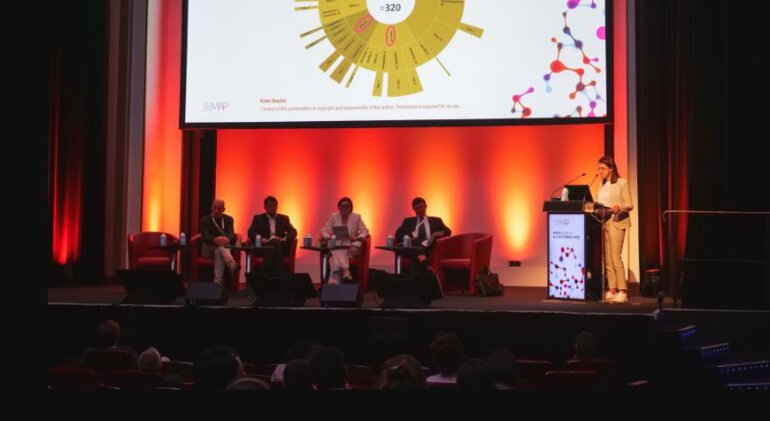Molecular Analysis for Precision Oncology Congress (MAP) 2023

Clonal haematopoiesis in the tumour microenvironment is an indicator of poor prognosis in NSCLC
Results from the TRACERx study suggest a potential role of CHIP as a prognostic biomarker, but further research is needed

Single-cell DNA sequencing confirms considerable intratumoural heterogeneity in breast cancer
The study involved patients with HR-positive/HER2-negative localised disease, but additional analyses are required to describe implications for clinical practice.

Complete molecular characterisation is feasible for many cancer patients, study suggests
In the MATCH-R study, comprehensive profiling included successful sequencing of DNA and also of RNA, enabling the detection of actionable genomic alterations

Precision oncology – are we at an inflection point?
At Molecular Analysis for Precision Oncology (MAP) Congress 2023, international experts discuss the future of histology-agnostic drug development and clinical trial design

Exploiting knowledge of neutrophil protumour and antitumour phenotypes to treat cancer
Identifying the trigger that switches neutrophils from protumour to antitumour activity in the tumour microenvironment could open the door to new therapeutic options

Environmental carcinogens – it’s not all about mutagens
Recent findings regarding the role of tumour promoters in cancer development should lead to a review of the mechanisms of action of existing environmental carcinogens


